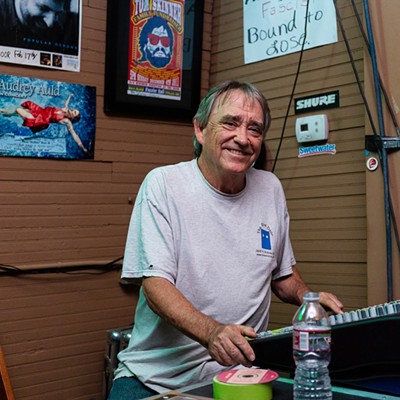It was joy and grieving and defiance. I was screaming at Timothy McVeigh and for that baby carried by the firefighter as much as I was yelling for our young team that was making our city proud much sooner than expected. In OKC, it is all wrapped up together, the joy and pain. Now, unfortunately, what Kevin Durant and Sam Presti have seen at the bombing memorial they get to see up close and personal.
Sixteen minutes from warning to impact. More than 12,000 homes destroyed or damaged. Whether it’s a tornado or a bomb, the impact on a community is the same: war zone-like. The trauma will be intergenerational. We have residents who have now lived through two natural disasters and one act of terrorism in the past 18 years.
Post-traumatic stress disorder, anxiety and depression are inevitable, even among the most resilient of Okies. My two sons emerged from their bedrooms one morning last week with wet eyes when they heard the weather radio go off for a nonthreatening thunderstorm.
And, of course, there are those schoolchildren who survived and the thousands now without homes who will be dealing with much more chronic mental health issues than my boys. Not attending to these issues will bring about inevitable complications in the form of substance abuse, workplace issues, domestic violence and other ramifications that bring immense social and economic costs to a community.
The Thunder, the Devon tower and the new central park all play positive roles in our quality of life, and we are lucky to have them. But the next MAPS needs to be about investing in people’s well-being, their emotional and mental health. There are those more creative and innovative than I who can figure out the details. Whatever form it takes, it needs to happen.
Oklahoma is not an easy place to live, with violent weather, wildfires, drought, oppressive heat, poverty. The Oklahoma standard of compassion has been touching, but the intensity and immediacy of it will naturally dissipate as the crisis grows distant in our rearview mirror. The need, however, does not disappear; if anything, it gets more complex and cunning.
Right now, we have the balm of things like the photo of that hug that melts our hearts — the heroism, the kindness and generosity. But when normalcy returns and the emotional depression comes, our community must have the resources available to help all of us heal. It will take a long time, much longer than it takes to rebuild those houses and schools.
Rice is a former state senator and Senate minority leader. His older brother, David, was killed in the Sept. 11, 2001 attacks. He is now executive director of the Variety Care Foundation.












